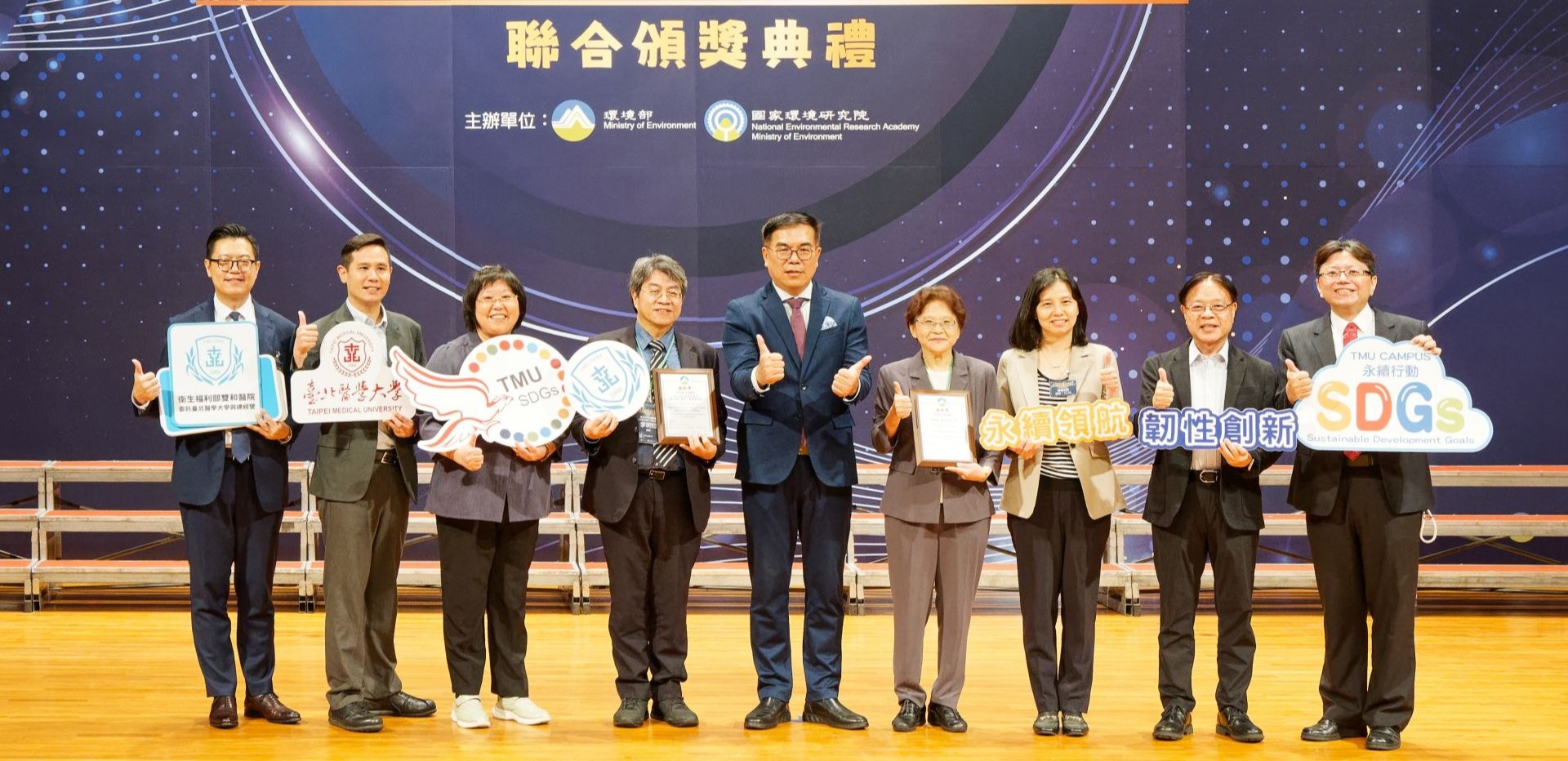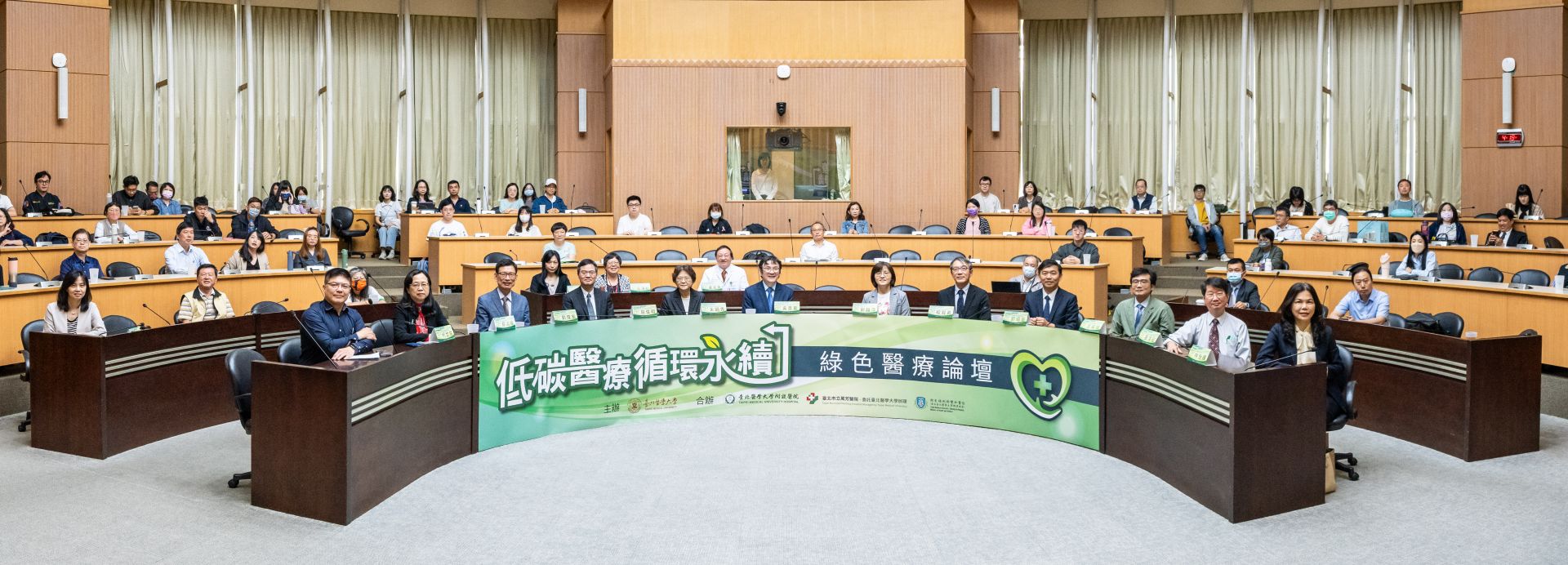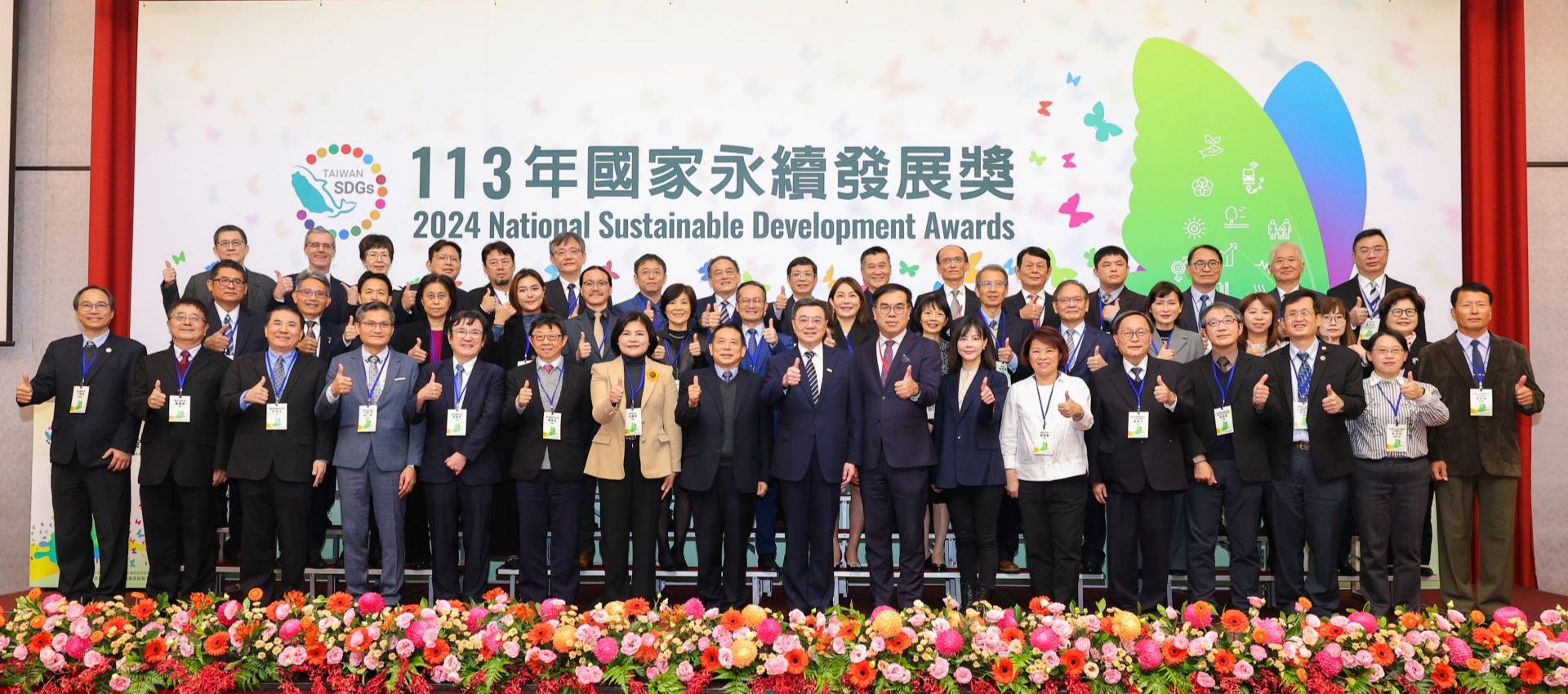TMU System Wins Multiple Awards at the “2025 Asia-Pacific & Taiwan Sustainable Action Awards”
On 15 October 2025, the affiliated hospitals of Taipei Medical University (TMU) — namely Taipei Medical University Hospital, Wanfang Hospital and Shuang‑Ho Hospital — were honoured at the 4th SDG Asia EXPO (2025 4th APSAA) with a total of 13 awards: 3 gold, 4 silver and 6 bronze at the 4th APSAA – Asia-Pacific Sustainable Action Awards and the 5th TSAA – Taiwan Sustainable Action Awards.

Taipei Medical University Hospital
 The Family Medicine Department received the silver award for their project “Reading Prescriptions: A Path to Early Literacy and Child Development”, which addresses the issue of language delay and low parent-child shared reading in rural areas. Since 2015 the hospital has implemented the “reading prescription” in primary care, with doctors in outpatient clinics issuing reading prescriptions and providing books. During the pandemic the project evolved into a “cross-generation remote shared reading” model, leveraging DLP voice-technology for early language detection and extending care to rural and disadvantaged groups, achieving high Social Return on Investment (SROI) and gaining international medical community attention.
The Family Medicine Department received the silver award for their project “Reading Prescriptions: A Path to Early Literacy and Child Development”, which addresses the issue of language delay and low parent-child shared reading in rural areas. Since 2015 the hospital has implemented the “reading prescription” in primary care, with doctors in outpatient clinics issuing reading prescriptions and providing books. During the pandemic the project evolved into a “cross-generation remote shared reading” model, leveraging DLP voice-technology for early language detection and extending care to rural and disadvantaged groups, achieving high Social Return on Investment (SROI) and gaining international medical community attention.
The Cardiology Department won a bronze award for “Advancing Equity in Cardio-Oncology with a Sustainable Integrated Care Model”. The project addresses cardiotoxicity in cancer treatment by coordinating cardiology and oncology teams, conducting comprehensive heart assessments for high-risk patients, and providing cardioprotective drugs. This model ensures heart health while cancer patients receive treatment, enhancing safety and long-term outcomes. It also won the gold medal from the international cardio-oncology society (IC-OS), becoming the first Taiwanese institution to receive it.
The Orthopaedics Department’s project “Spine Endoscopy: Sustainable Innovation” received a bronze award from the Taiwan Sustainable Action Awards. The programme integrates minimally invasive spine endoscopy with Enhanced Recovery After Surgery (ERAS) processes, significantly improving patient recovery — the average hospital stay in 2024 dropped from 2.4 days to 1.1 days (↓ 54 %), 92 % of patients were self-caring within days, and patient satisfaction reached 4.8/5. The initiative reduced bed-occupancy by 366 person-days, cut carbon emissions by 5,000 kg+, and saved over NT$6 million in healthcare cost. This project offers a viable model for sustainable surgery in the Asia-Pacific region.
Wanfang Hospital
Wanfang Hospital was awarded 1 silver and 3 bronze at the Taiwan Sustainable Action Awards, and 1 silver and 1 bronze at the Asia-Pacific Sustainable Action Awards, totaling 6 awards. The Knowledge Translation Center’s “Evidence-Led Sustainable Knowledge Translation” project won silver at APSAA and bronze at TSAA, aligning with UN SDG 4 (Quality Education). As Asia’s first clinical-care-centred knowledge-translation organization, the centre has held over 300 journal-clubs and driven 43 hospital-wide evidence-based cases, influencing 10+ countries globally.
 The Cancer Centre’s “Holistic Care, Multi-Partner Anti-Cancer” project, corresponding to SDG 17 (Partnerships for the Goals), won the silver APSAA award. The initiative integrates 14 multidisciplinary teams via smart information systems, delivering personalised precision care from screening through treatment. The model has not only earned domestic quality certifications but also contributed internationally by supporting eSwatini’s cancer diagnosis and treatment system, fulfilling the spirit of sustainable cooperation.
The Cancer Centre’s “Holistic Care, Multi-Partner Anti-Cancer” project, corresponding to SDG 17 (Partnerships for the Goals), won the silver APSAA award. The initiative integrates 14 multidisciplinary teams via smart information systems, delivering personalised precision care from screening through treatment. The model has not only earned domestic quality certifications but also contributed internationally by supporting eSwatini’s cancer diagnosis and treatment system, fulfilling the spirit of sustainable cooperation.
In the innovation domain, the Medical Laboratory Department’s “Industry, Innovation and Infrastructure (SDG 9)”-focussed “Smart Testing Drives Sustainable Transformation” project introduced Taiwan’s first closed-loop testing automation system (STARS), incorporating ultra-high-speed pneumatic transport, intelligent sample routing and automated analysis. The system shortened turnaround time and optimised workflows, resulting in 2 bronze awards from APSAA & TSAA.
The Orthopaedic team also launched “Turnaround Shoulder Pain New Vision” (SDG 12: Responsible Consumption and Production), refining local minimally invasive shoulder arthroscopy over 18 years: low infection/re-operation rates and resource-smart, digitised, standardised workflows resulted in a TSAA bronze award.
Director Liu Can-Hong of Wanfang stated: “These awards recognise our team’s long-term commitment to medical innovation and sustainable development. Going forward we will deepen each domain, remain patient-centred, and combine smart technology with sustainability, to deliver more comprehensive, quality care to the public.”
Shuang-Ho Hospital Shuang-Ho Hospital proudly won 3 gold and 1 silver awards: gold awards for “e-Inpatient Transformation for Sustainability, Innovating Inpatient Services, Sustaining Tomorrow” (SDG 9) — an advancement of digital inpatient processes to reduce paper and resource waste, enhance care efficiency and patient experience; and for “One Team, One Country: Building Resilient Medical–Community Integrated Systems” (SDG 16) — merging medical and community‐care forces to build a cross-domain health protection network that strengthens community resilience and national health coverage (silver & gold).
Shuang-Ho Hospital proudly won 3 gold and 1 silver awards: gold awards for “e-Inpatient Transformation for Sustainability, Innovating Inpatient Services, Sustaining Tomorrow” (SDG 9) — an advancement of digital inpatient processes to reduce paper and resource waste, enhance care efficiency and patient experience; and for “One Team, One Country: Building Resilient Medical–Community Integrated Systems” (SDG 16) — merging medical and community‐care forces to build a cross-domain health protection network that strengthens community resilience and national health coverage (silver & gold).
The achievement affirms the hospital’s innovation and global impact in sustainable healthcare. In the future, Shuang-Ho will continue launching diverse sustainable programmes, adhering to the philosophy of “sustainability, inclusion, innovation”. It will join hands with staff, patients and society to safeguard health and co-create a sustainable future.



![[2025 MOE USR Co-Learning] TMU Leads SROI Practice](/userfiles/images/20251009180308153.JPG)


